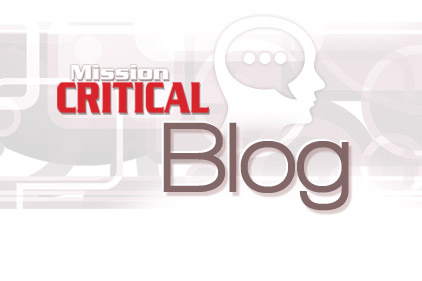During the event, Frank Frankovsky, director of technical operations at Facebook, led a distinguished group of panelists who began to answer an audacious question to the industry: "What if hardware were open?”

|
|
Frank Frankovsky of Facebook at the Second Open Compute Summit in New York City. |
Discussions about what meeting this challenge would mean dominated the early (public) part of the morning session before the group broke into five working groups, including storage, open rack, virtualization, systems management, and data center design. The conceit of this group is that the same open source approach that has worked so well for Linux could be applied to the entire data center.
The industry panelists, which included James Hamilton from AWS, described a world in which the increased standardization brought about by open sourcing, would lead the open data center community to improve energy efficiency, reduce costs, and improve reliability. I don’t remember hearing about improved interconnectivity, but it seemed almost a given considering how the conversation veered towards standardized points and APIs. Jimmy Pike of Dell DCS summed it up best, I think, “Standards can set you free.”
Yet the discussion focused greatly on the improvements that the Open Source approach could bring. Andy Bechtolsheim said, “Innovation is a friend, gratuitous differentiation is our enemy.”
He, along with Hamilton, noted the customized approach to data center construction typical in the industry led to a number of efficiencies that could be eliminated.
As a leader of this effort, Facebook stood out, in part because of its leadership in sharing designs related to its Prineville, OR, facility. These designs can be found on the Open Compute Initiative web page. Frankovsky noted that Facebook expected to benefit from its participation in the Initiative by gaining access to an industry community that could help it achieve its IT goals by providing expertise that it would be unlikely to match even with a large staff of engineers. He also noted that Facebook would gain an edge in on campus recruiting.
The October 27 event was the organization’s second Summit, the first having taken place on the West Coast, and the summit succeeded in attracting an audience of knowledgeable vendors and end users, indicating that the organization’s idea might have some appeal among the financial community and other east coast organizations. In this regard, the participation of Don Duet from Goldman Sachs on the initial panel of directors and advisers is significant. Joining Duet on the board are Mark Roenigk from Rackspace, Jason Waxman from Intel, Frankovsky, and Bechtolsheim.
The open source approach is new to data centers, and significant organizational work remains to be done. The panel has taken significant strides to developing a community but many large players remain outside the circle for now, the group’s financial plan needs to be detailed, and most importantly, protocols need to be developed for the handling of intellectual property, both to protect the community and the organization that will be formed to evaluate new projects. Frankovsky said, “Expenses associated with open source are usually small, but we will have to involve some professionals who will expect to be paid. It would be hard to find a more passionate technical group than the people we have on stage, but we can’t expect other professionals to work for free. I expect our largest expenses will be for lawyers, and that we will be able to generate income from events like this.”


Recent Comments
Enterprise Patch Management Policy
Hi Mr. Douglas, I really enjoyed this post....
IT management Support and Services
Modular construction discussion is very important for professional...
Good summary with a couple of questions: At...